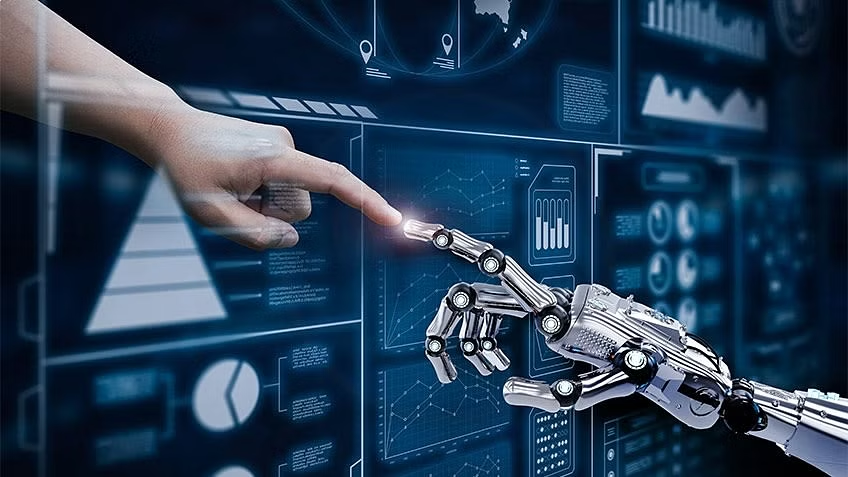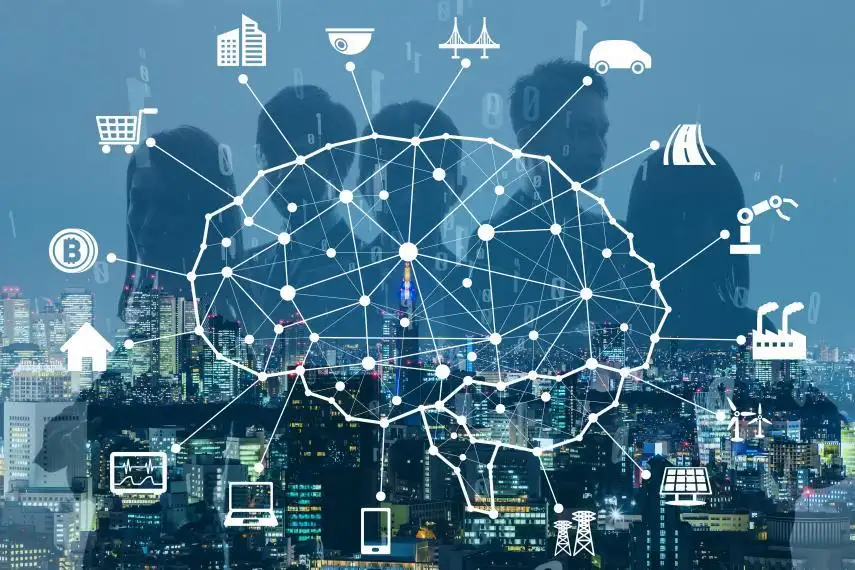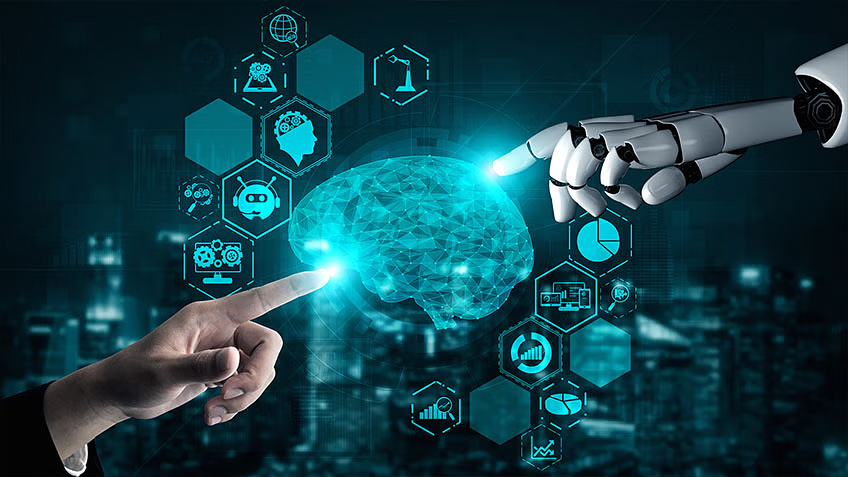Deep learning is not merely a technological advancement; it represents a paradigm shift that is reshaping industries, societies, and our daily lives. As we continue to explore its capabilities, several emerging trends and applications highlight its profound impact and potential.
Advancements in AI Hardware
- Specialized AI Chips:
- Graphics Processing Units (GPUs): Originally designed for graphics rendering, GPUs are now pivotal in deep learning due to their parallel processing capabilities. They accelerate the training of complex neural networks, enabling faster and more efficient AI computations.
- Tensor Processing Units (TPUs): TPUs are specialized hardware designed by Google to optimize the performance of deep learning tasks. They are used in data centers and cloud services to handle large-scale machine learning operations with high efficiency.
- Neuromorphic Chips: Neuromorphic computing mimics the human brain’s architecture, aiming to improve energy efficiency and processing speed for AI tasks. These chips are designed to support real-time, adaptive learning and cognitive functions.
- Quantum Computing:
- Quantum Machine Learning: Quantum computing promises to enhance deep learning by solving complex problems faster than classical computers. Quantum algorithms could accelerate training times, optimize models, and tackle problems currently beyond the reach of conventional computing.
- Quantum-enhanced Algorithms: Researchers are developing algorithms that leverage quantum computing to improve performance in areas like optimization, data analysis, and simulation, potentially revolutionizing AI capabilities.
Impact on Daily Life
- Smart Homes:
- Home Automation: AI-driven home automation systems manage lighting, heating, and security, offering convenience and energy efficiency. Voice-activated assistants, powered by deep learning, control smart devices and respond to user commands.
- Predictive Maintenance: Smart home devices use AI to predict maintenance needs, identify potential issues before they arise, and alert homeowners to take preventive actions, ensuring optimal performance of household systems.
- Personal Health Monitoring:
- Wearable Devices: AI-powered wearables track health metrics such as heart rate, sleep patterns, and activity levels. These devices provide personalized insights and recommendations, helping users manage their health proactively.
- Health Analytics: Deep learning analyzes data from wearables and other health sources to detect early signs of health conditions, enabling timely intervention and personalized care plans.
- Personal Finance:
- Financial Management: AI-driven apps help users manage their finances by analyzing spending patterns, offering budgeting advice, and recommending investment strategies. These tools enhance financial literacy and empower users to make informed decisions.
- Fraud Detection: AI systems monitor financial transactions for unusual patterns and potential fraud. By identifying anomalies in real-time, these systems protect users and institutions from financial losses.
Evolution of AI Research
- Explainable AI (XAI):
- Transparency: Explainable AI focuses on making AI models more transparent and interpretable. By providing clear explanations of how models make decisions, XAI builds trust and enables users to understand and validate AI outputs.
- Regulatory Compliance: As AI regulations become more stringent, XAI helps organizations comply with requirements for transparency and accountability, particularly in sectors like finance and healthcare.
- Ethics in AI Research:
- Ethical Guidelines: Researchers are developing ethical guidelines to govern the use of AI, addressing concerns related to privacy, bias, and societal impact. These guidelines ensure that AI technologies are developed and deployed responsibly.
- AI Safety: Ensuring the safety of AI systems involves designing mechanisms to prevent unintended consequences and mitigate risks. AI safety research explores ways to align AI behavior with human values and safety standards.
- AI for Social Good:
- Disaster Response: AI aids in disaster response by analyzing satellite imagery, predicting natural disasters, and coordinating relief efforts. These technologies enhance response efficiency and improve outcomes for affected communities.
- Humanitarian Efforts: AI supports humanitarian efforts by optimizing resource allocation, analyzing data for crisis management, and providing support for underserved populations, contributing to global development and equity.
Business and Industry Applications
- Financial Services:
- Algorithmic Trading: AI algorithms analyze market data to make trading decisions, optimizing investment strategies and improving financial outcomes. These systems adapt to market conditions in real-time, providing competitive advantages.
- Risk Management: AI assesses and manages financial risks by analyzing historical data, predicting market trends, and identifying potential threats. This enhances decision-making and reduces exposure to financial risks.
- Retail and E-Commerce:
- Inventory Management: AI optimizes inventory levels by predicting demand patterns and managing supply chains. This reduces waste, improves stock availability, and enhances operational efficiency.
- Customer Service: AI-powered chatbots and virtual assistants handle customer inquiries, process orders, and resolve issues, providing efficient and personalized service.
- Manufacturing:
- Predictive Maintenance: AI predicts equipment failures and schedules maintenance activities, reducing downtime and extending the lifespan of machinery. This improves operational efficiency and reduces maintenance costs.
- Quality Control: AI systems inspect products for defects and ensure quality standards are met. By analyzing production data and detecting anomalies, these systems enhance product quality and consistency.
Future Directions
- AI for Climate Action:
- Environmental Monitoring: AI analyzes data from satellites and sensors to monitor environmental changes, track pollution levels, and assess the impact of climate change. This information supports climate action and policy development.
- Sustainable Practices: AI promotes sustainable practices by optimizing energy use, reducing waste, and supporting the transition to renewable energy sources. These efforts contribute to environmental conservation and sustainability.
- Human-AI Collaboration:
- Augmented Intelligence: AI enhances human capabilities by providing tools that support decision-making, creativity, and problem-solving. This collaborative approach leverages the strengths of both humans and machines.
- AI-Driven Innovation: Collaborative efforts between AI systems and human experts drive innovation across various fields, leading to new solutions and advancements in science, technology, and industry.
- Global AI Initiatives:
- AI Research Networks: Global research networks facilitate collaboration and knowledge sharing among AI researchers and practitioners. These initiatives accelerate progress and address global challenges through collective expertise.
- AI for Development: International organizations and initiatives focus on using AI to address global development challenges, such as poverty, education, and health. These efforts aim to improve quality of life and promote sustainable development worldwide.
Conclusion
Deep learning is a transformative force that continues to evolve and expand its impact across various domains. From enhancing personalization and creativity to advancing healthcare and environmental sustainability, deep learning is shaping the future of technology and society. As we explore new frontiers and applications, it is essential to address ethical considerations, promote responsible development, and leverage AI for the greater good.
The ongoing advancements in AI hardware, research, and applications highlight the potential of deep learning to drive innovation and solve complex problems. By embracing these advancements and navigating challenges responsibly, we can harness the power of deep learning to create a more connected, equitable, and sustainable world. The journey of deep learning is a testament to human ingenuity and the potential for technology to transform our lives and shape the future.



